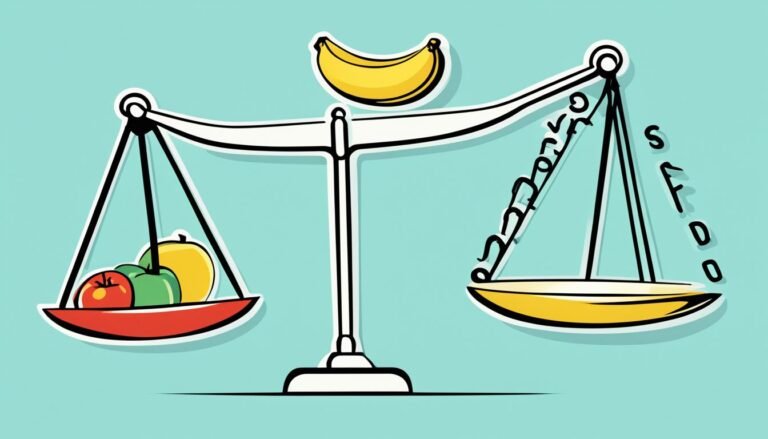Theory Comparison: Porter vs. Mintzberg
In the world of strategic management, Michael Porter and Henry Mintzberg are giants. They have changed how we see strategy. Their different views have started a debate. What can we learn by comparing the deliberate strategy of Porter and the emergent strategy of Mintzberg?
Porter and Mintzberg have greatly influenced strategic management. But they see strategy in different ways. Porter believes in a careful, analytical process to understand industries and make strategies. Mintzberg, on the other hand, sees strategy as something that grows and changes over time.
The Two Titans of Strategic Management
Michael Porter: The Deliberate Strategy Approach
Michael Porter is a top professor at Harvard Business School. He’s a big name in business strategy. His approach focuses on careful planning and analyzing the 5 competitive forces. He suggests choosing one of three main strategies to beat the competition.
Porter believes a company can stand out by making a clear choice of activities. This method was widely used by companies and supported by top consulting firms. It made Porter a key figure in strategic management.
“Competitive strategy is about being different. It means deliberately choosing a different set of activities to deliver a unique mix of value.”
Porter’s ideas changed how companies think about strategy. He stressed the importance of michael porter, deliberate strategy, and the role of harvard business school and management consulting in making strategic choices. His work has been applied in many industries, making him one of the two giants of strategic management.
Henry Mintzberg: Embracing Emergent Strategy
Henry Mintzberg, a top management thinker, offers a different view on strategy. He believes strategy comes from an organization’s view, position, plan, and actions over time. Mintzberg’s “emergent strategy” idea says strategy often comes from the mix of plans and changing situations, not just careful planning.
Mintzberg studied 11 in-depth cases and found various strategies, from planned to emergent ones. He saw that some strategies are planned, while others are more entrepreneurial, ideological, or shaped by outside forces. His Organizational Configurations Framework helped shape organizational theory, listing six valid structures.
“Good strategy does not result from excessive research and modeling but rather from a simple process of thinking through how to achieve a target and assessing its feasibility.”
Mintzberg is critical of the traditional MBA model, seeing it as too theoretical. He co-founded the International Masters Program for Managers (IMPM) to fix this. This program focuses on practical wisdom and solving problems.
Mintzberg’s emergent strategy idea urges leaders to face an uncertain future and make choices that narrow down options. This method stresses the need to think about what customers want and the practicality of strategies. It moves away from just using self-focused frameworks.
Porter vs. Mintzberg: Contrasting Views on Strategy
The Deliberate vs. Emergent Debate
Michael Porter and Henry Mintzberg have different views on strategy. Porter believes in a detailed strategy made by experts and top management. This plan guides the company for years. Mintzberg, on the other hand, sees strategy as a flexible process that changes as things happen.
This debate has been going on for over 25 years in strategic management. Porter’s ideas, like the 3 Generic Strategies and the 5 Forces Model, are well-known. Mintzberg’s emergent strategy is now more popular as business gets more unpredictable.
“Strategy is not a 250-page plan, it’s a fluid, adaptive process that emerges as intentions collide with reality.”
– Henry Mintzberg
Porter’s ideas are still important, but Mintzberg’s approach is more relevant now. With new technologies, global issues, and changing values, emergent strategy is key for planning.
The debate between Porter and Mintzberg is still important for business leaders and experts. It helps us think about how to plan for the future.
Theory Comparison: Porter vs. Mintzberg
Michael Porter’s strategic management theories are still big in the business world. But, Henry Mintzberg’s ideas are becoming more important today. His view on emergent strategy fits well with how companies work now.
Mintzberg sees strategy as a process that changes over time. This fits well in a world where industries change fast. He also talks about how companies are structured and how to focus on what’s important.
“Strategy is a pattern in a stream of decisions.” – Henry Mintzberg
Porter’s ideas about being better than others by being cheaper or different are still big. But Mintzberg’s ideas about adapting to change are also key. This way, companies can stay strong even when things change suddenly.
Looking at Porter and Mintzberg’s ideas shows how they work together. They give companies a full view of strategic management. This helps them use both planned and changing strategies for success.
The Relevance of Porter’s Ideas Today
Henry Mintzberg’s ideas have become more popular lately, but Michael Porter’s ideas are still key in business. Many companies use Porter’s 5 Forces model and 3 Generic Strategies in their plans.
Porter has also moved into new areas like healthcare strategy and corporate social responsibility. This shows a big change in how companies should work. They’re now thinking about how they affect society, not just profits.
Porter’s tools are still very useful for making strategies. The 5 Forces model helps companies see what’s happening in their industry. The 3 Generic Strategies guide them on how to stay ahead.
Even though Mintzberg’s ideas fit today’s fast-changing business world, Porter’s ideas are still very useful. They help companies make smart plans and decisions.
“Competitive advantages and long-term growth are achievable by employing Porter’s principles through informed decision-making and strategic management strategies.”
By using both Porter’s and Mintzberg’s ideas, companies can make better strategies. This helps them do well in today’s changing market.
Mintzberg’s Emergent Strategy in Practice
Henry Mintzberg’s ideas on emergent strategy have made a big splash in schools and beyond. The growth of agile project management and the “social enterprise” show how his theories work in real life.
Companies across different fields are now using a more flexible way to make strategies. They’re moving away from strict, long-term plans. Real-world examples and case studies show how this new approach helps them quickly adapt to changes in the market.
Emergent Strategy in Action
Take social enterprise groups, for example. They aim to make a positive change in the world. Because a top-down strategy doesn’t always work for them, they use emergent strategy principles. This means their strategies come from the people involved, based on what they need and say.
Also, leadership development programs now focus more on teaching strategic thinking and decision-making. This matches Mintzberg’s view on the role of leaders in guiding their teams.
“The best strategies emerge from a process of organizational learning, not from having the right strategic plan.”
– Henry Mintzberg
Integrating Deliberate and Emergent Strategies
Michael Porter and Henry Mintzberg have had a long debate in strategic management. Porter believes in a careful strategy-making process. He says it’s all about deep industry analysis and aiming for a lasting edge over competitors. On the other hand, Mintzberg suggests that being adaptable and learning within the company is key.
But what if we could combine these views? Using both deliberate and emergent strategies can greatly benefit organizations. By planning carefully, as Porter suggests, companies can set a clear path and use resources well. At the same time, embracing Mintzberg’s emergent strategy helps them stay quick to respond to new market trends.
This mix of strategies helps companies balance planning with learning. It lets them use their strengths while being ready to change as needed. Procter & Gamble is a great example of this, blending both strategies in the consumer goods market to keep leading and growing.
PayPal shows how emergent strategy can lead to big changes. Starting with security software, they saw a new chance and shifted to become a top digital payment service. This shows how being adaptable can make a big difference.
In today’s fast-changing business world, mixing deliberate and emergent strategies is crucial for success. Deliberate strategies work best for companies with clear goals and a stable market spot. Emergent strategies are better for startups or companies facing big changes.
By using both strategies, companies can get the best of careful planning and quick adaptability. This way, they can stay ahead and keep doing well over time.
Conclusion
Michael Porter and Henry Mintzberg have greatly influenced business strategy with their theories. Porter focuses on detailed analysis and generic strategies. Mintzberg sees strategy as adaptable and changing over time. Combining these views can help companies stay ahead and change for the better.
Porter’s method is all about careful planning and analysis. Mintzberg believes in being quick to adapt to new trends. By using both approaches, leaders can make strong plans and stay ready for surprises.
The debate between Porter and Mintzberg shows how complex strategy can be. By picking the best parts of their theories, companies can improve their planning and do better in a fast-changing world. This helps with growth, new ideas, and lasting success.
Source Links
- The Management Theory of Michael Porter
- PPT – Comparisons & Contrasts; Henry Mintzberg, Michael Porter PowerPoint Presentation – ID:6896985
- Porter’s Generic Competitive Strategies (ways of competing)
- Strategizing
- Strategic Management basics
- Schools of Thought on Strategic Management
- The Big Lie of Strategic Planning
- Porter or Mintzberg: Whose View of Strategy Is the Most Relevant Today?
- What is the management theory of Henry Mintzberg?
- Microsoft Word – 4-A Critique of Porter’s Cost Leadership and Differentiation Strategies_CBR_May 11.doc
- Michael Porter: Impact of Strategic Management Theory
- Henry Mintzberg’s 10 Schools of strategic thought
- Mintzberg’s 5Ps of Strategy – BusinessBalls.com
- Emergent vs. Deliberate Strategy: How & When to Use Each
- Of strategies deliberate and emergent – Henry Mintzberg
- Research and Writing on Risk and Safety Policy – Work: Strategy and Mintzberg
- Demystifying Strategy: Exploring Mintzberg’s Theory of Strategic Management
- The Lord of the Strategies: Exploring Mintzberg’s 5 Ps






